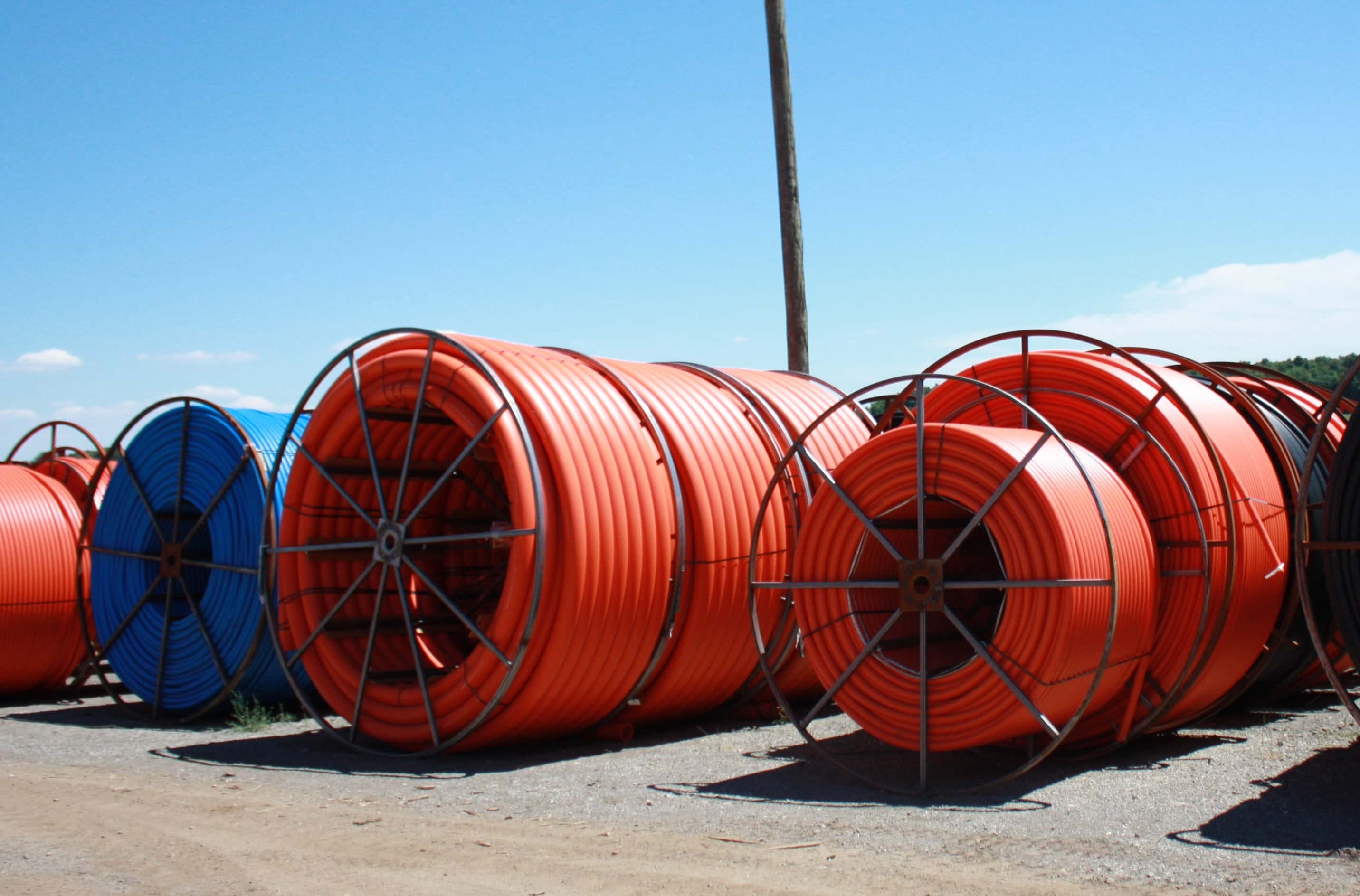Understanding the Secret Advantages of HDPE Pipeline for Water and Wastewater Management
Using HDPE pipe in water and wastewater management provides various benefits that warrant consideration. Its extraordinary sturdiness and long life-span make it a favored option for many projects. Furthermore, the product's resistance to rust and chemical damages improves its dependability in various environments. Nonetheless, the benefits expand beyond just long life and resistance. Discovering its cost-effectiveness and environmental impact discloses also extra engaging factors for its extensive fostering in modern-day framework
Remarkable Toughness and Longevity

HDPE pipeline stands apart for its outstanding durability and longevity, making it a favored selection in water monitoring systems. Constructed from high-density polyethylene, these pipes can endure significant pressure and stress, guaranteeing dependable efficiency over time. Their durable nature permits them to endure severe environmental problems, consisting of temperature fluctuations and dirt movements, which can trigger other materials to fail.
The life expectancy of HDPE pipelines usually surpasses 50 years, providing a cost-efficient service for municipalities and markets alike. In addition, the product's light-weight buildings streamline installment, decreasing labor costs and durations. This resilience lessens the requirement for regular fixings or replacements, further enhancing its financial allure.
In water monitoring applications, the dependability of HDPE pipelines suggests fewer disturbances and enhanced service continuity, making them important to sustainable facilities development. The mix of durability and long life solidifies HDPE's role as a foundation in effective water management options.

Resistance to Corrosion and Chemical Damage
While many materials give in to corrosion and chemical damages gradually, HDPE pipelines show remarkable resistance, making them optimal for different water monitoring applications. This resilience originates from the molecular framework of high-density polyethylene, which is naturally non-reactive and does not corrode like steels or deteriorate from direct exposure to extreme chemicals. Therefore, HDPE is very effective in settings with aggressive compounds, such as wastewater systems that might have acids, bases, and organic solvents.
In addition, HDPE pipes can stand up to ecological aspects such as soil level of acidity and saline conditions, additionally boosting their suitability for varied applications (custom hdpe pipe manufacturing Midland TX). Their capacity to preserve architectural honesty over time minimizes the threat of leakages and failures, which is crucial in making sure the security and dependability of water distribution and wastewater management systems. The resistance to deterioration and chemical damages noticeably adds to the overall efficiency and durability of HDPE piping options.
Cost-Effectiveness and Financial Advantages
When thinking about the monetary implications of water management systems, the cost-effectiveness of HDPE pipes comes to be apparent. These pipes offer lower setup and upkeep expenses contrasted to traditional materials like steel or concrete. Their lightweight nature simplifies transportation and setup, resulting in lowered labor costs. Furthermore, HDPE pipelines display a long lifespan, often surpassing 50 years, which equates to fewer substitutes and long-lasting cost savings.
The resistance of HDPE to corrosion and chemical damage minimizes the demand for expensive fixings and replacements. The pipes also sustain efficient water circulation, minimizing energy costs related to pumping systems. By reducing leakages and water loss, HDPE pipelines contribute to significant financial advantages for communities and industries alike. Generally, the initial financial investment in HDPE piping can generate substantial economic returns over the lifespan of the water monitoring system, making it a sensible choice for lasting infrastructure growth.
Environmental Sustainability and Reduced Impact

Versatility and Flexibility in Installation
As a result of their distinct residential or commercial properties, HDPE pipes supply impressive flexibility and flexibility in installment, making them appropriate for a large range of applications. Their light-weight nature enables for simpler handling and transport, lowering labor expenses and installation time. HDPE pipelines can be curved and formed to fit different terrains and task demands, which is especially advantageous in testing settings.
Furthermore, their resistance to corrosion and chemical damages allows for installment in diverse setups without the need for specialized safety finishings. The ability to fuse joints produces a continuous, leak-free system, boosting the general integrity and integrity of the setup. HDPE's flexibility additionally suits ground motion, reducing the threat of damage in locations prone to changing soil. Generally, these characteristics make HDPE pipelines not only flexible but additionally a preferred selection for water and wastewater management systems.
Regularly Asked Concerns
Just How Does HDPE Pipeline Compare to PVC in Water Administration Applications?
HDPE pipe uses superior adaptability, resistance to rust, and durability compared top article to PVC. Its lighter weight facilitates simpler setup, while its lengthy life-span lowers replacement expenses, making HDPE a recommended selection in water management applications.
What Is the Lifespan of HDPE Water Lines Under Normal Problems?
Under regular problems, HDPE pipelines can have a lifespan ranging from 50 to 100 years. Their toughness and resistance to rust add to their lasting efficiency in numerous applications, making them a trusted selection for framework.
Are HDPE Piping Recyclable After Their Solution Life?
Yes, HDPE pipelines are recyclable after their life span. custom hdpe pipe manufacturing Midland TX. They can be processed and repurposed into brand-new items, substantially minimizing environmental impact and advertising sustainability within the sector, making them an environmentally friendly choice for piping remedies
What Is the Installation Refine for HDPE Water Lines?
The setup process for go to website HDPE pipelines entails site preparation, trenching, pipeline combination or mechanical joining, backfilling, and stress testing. Proper strategies assure a sturdy and reliable system for carrying water and wastewater successfully.
Can HDPE Pipes Be Made Use Of for Both Drinkable and Non-Potable Water Systems?
Yes, HDPE pipelines can be utilized for both potable and non-potable water supply. Their flexibility, resilience, and resistance to deterioration make them appropriate for various applications, guaranteeing safe and effective transport of water in various contexts.